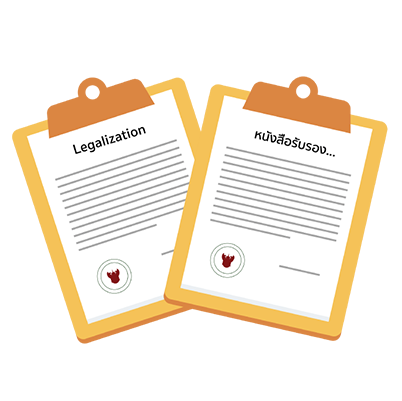Legalisation
Legalisation makes documents suitable for use in another country. To legalise a document, the competent authorities sign and stamp it. Several different steps may be needed to complete the process.
-
Legalisation verifies that:
- The signature on the document is genuine.
- The person who has signed the document is a public official who is authorised to sign the document concerned (i.e. the signature of a government authorised translator or similar is not sufficient).
- The official stamp of the government agency that has issued the document is genuine.
The Royal Thai Embassy does NOT verify or entail:
- Any validation of the accuracy of the content of the document.
- A signature of a foreigner.
The legalisation process:
1. A foreign document must be translated into English.
2. The document has to be certified by a notary public (e.g. the district court-tingrett).
3. The document has to be legalised by the Ministry of Foreign Affairs of Norway or the Ministry for Foreign Affairs of Iceland.
4. The document needs to be certified by the embassy/consulate that represents the country in which the document is to be used.
-
*The original and translated documents must be separately legalized*
Further information regarding legalisation process can be found here:
English version: Regjeringen.no - Legalisation
Norwegian: Regjeringen.no - Legalisering
Required document(s)
- A foreign applicant or representative must bring his/her valid copy of passport
- A request form
- Documents that have been certified by a notary public and legalised by the Ministry of Foreign Affairs of Norway or the Ministry for Foreign Affairs of Iceland.
If you are unable to visit the Embassy to present the documents for legalization, you may give an authorization to another person to act on your behalf.
You must issue a power of attorney (Fullmakt) (Download Power of Attorney form) with a copy of your valid ID card/passport to the person that shall act on behalf of you, stating what the power of attorney concerns.
When the person visits the Embassy, he/she needs to present the original power of attorney together with his/her valid ID card/passport.
Fee(s)
